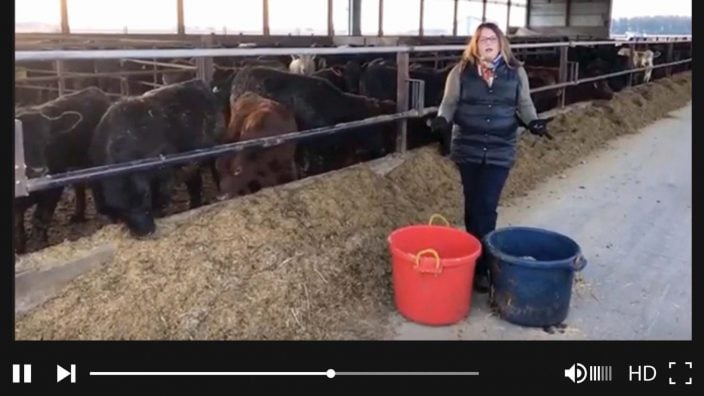Ohio Farm Bureau introduces Energy and Utility Issues Resource Guide
Ohio Farm Bureau’s newest resource for members seeks to help farmland owners navigate the many questions surrounding energy development.
Read MoreSurrounded by a herd of black Angus cattle in the feedlot of the family farm, Erin Stickel is all business as she details the intricacies of raising beef for an Ohio high school class studying animal and plant science.
And while the students can hear the cows mooing and see Stickel in the barn with her boots covered in manure and straw, they’re comfortably seated in their Sidney High School classroom as they learn what the cattle eat, how they’re bred and how they fit into the life cycle of the Stickel farm in northwest Ohio.
Stickel is hosting a virtual farm tour, one of more than 100 held over the past five years through a partnership between farmers, commodity organizations and Shift•ology Communication of Springfield.
Shift•ology organizes the tours and provides the technology while farmers give the tours via video conferencing. Commodity groups like the Ohio Pork Council, the Ohio Beef Council and the Ohio Soybean Council help promote and pay for the tours, line up farmers to do the tours and provide moderators for each tour.
“They’re as close as you can get without actually stepping on a farm,” said Dan Toland, Shift•ology’s virtual farm trip manager. “We focus on live, unscripted, highly engaging trips.”
Virtual farm trips emerged several years ago when money for school field trips grew scarce and technology became sophisticated and inexpensive enough so that tours could be easily live-streamed from farms to video screens in classrooms.
Thousands of students can watch a single tour and, depending on how many are participating, can ask questions directly through the live stream or by message, Toland said. The tours are free for students, who range from elementary to high school.
“It’s a great way for farmers to show what they do,” Toland said. “There’s no agenda or talking points, just the farmer sharing what they’re doing.”
Stickel, a Wood County Farm Bureau member, has been a virtual tour guide on her husband’s family farm for two years.
“We believe in offering opportunities for people to see, touch and smell the things that production agriculture can provide, and we open our farm up to various groups,” said Stickel, who grew up on a nearby farm. “The goal is for students to see and hear what happens on a cattle operation, for kids to have an appreciation for the practices and sustainability of the production process. There’s a whole supply chain behind where food comes from and it’s important that kids appreciate all that goes into keeping food in their bellies.”
Kayla Jones, Farm Bureau organization director for Knox, Holmes, Licking and Coshocton counties, has encouraged virtual farm tours within her area for the last few years.
“We start with a teacher or group of teachers that are interested in working a virtual field trip into their curriculum,” she said. “Then we have a group of farmers we contact who are willing to participate. What it takes is a solid internet connection, a bluetooth headset and an iPad.”
Two-way access to the students during the tour is essential, she said, so they can ask questions in real time. The tour generally takes less than an hour.
Jones said virtual farm field trips are especially ideal for farmers who would generally not host on-site field trips, such as those with bio-security requirements.
“Those virtual field trips are important because students just don’t know what happens on those farms because they aren’t allowed to see it,” Jones said. “If we don’t take the time to show them, someone else will tell them and it might not be true. Getting the truth out there about what it’s really like is what’s most important.”
During her recent tour, Stickel talked about how the cows on their farm are bred (naturally), calving arrangements (they’re moved into a calving barn before the birth) and what they’re fed (a mix that includes distiller’s grain, soybean meal and bakery byproducts).
Teacher Michael Ward asks how the feedlot is kept environmentally sound. Stickel explains that the space has great circulation and the herd is small enough that farm staff can check it each day and quickly find sick animals.
Naturally, Stickel also has a few words to say about the manure the herd produces, noting that it’s “supercritical” to the farm’s bottom line and has cut their use of fertilizer by 80% in recent years.
“Cattle don’t stop pooping every day,” she said, so the farm has a manure holding area for any excess that can’t be used immediately.
For Stickel, the tours have been an opportunity to help educate children about farming and demystify agriculture. And they’re held rain or shine.
“Last year it was disgusting one day — 35 degrees and raining — and I told the students that this is real life, that it gets a little sloppy in the barn and that’s just the reality. Some days you have to deal with a little bit more mud than others.”

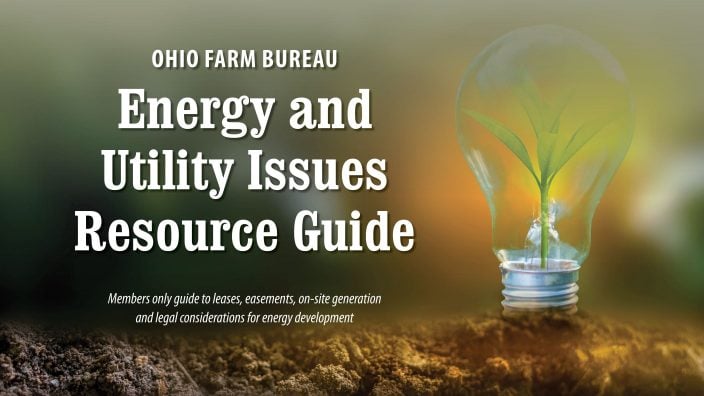
Ohio Farm Bureau’s newest resource for members seeks to help farmland owners navigate the many questions surrounding energy development.
Read More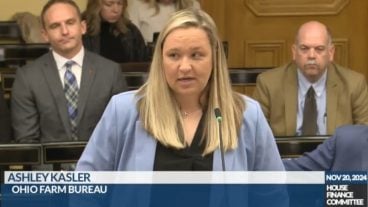
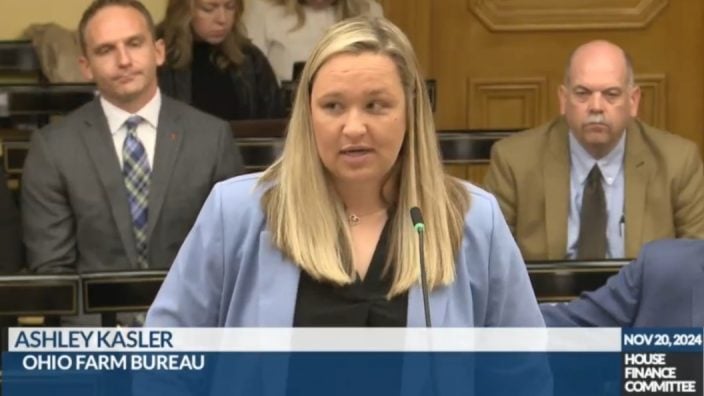
HB 683 would provide meaningful relief by investing $10 million in the counties that were most severely impacted by relentless hot and dry conditions this past summer.
Read More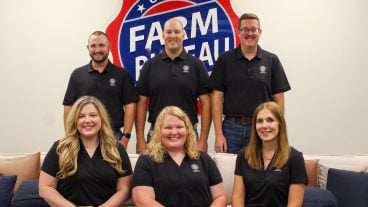
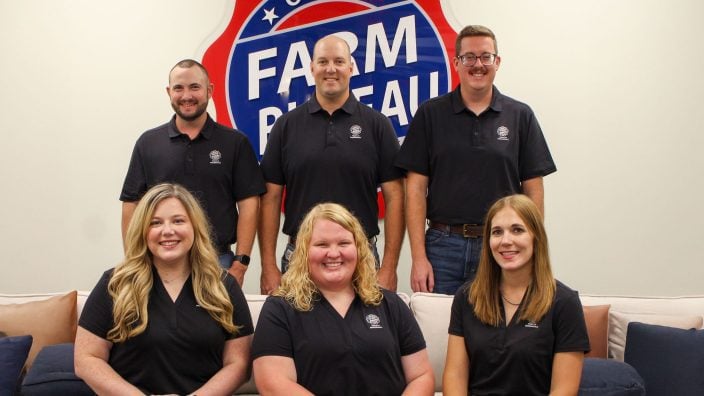
New members are Katherine and Bill Brown of Stark County, Abby and Blake Campbell of Washington County, Josh Ison of Clermont County and Hannah Thompson of Meigs County.
Read More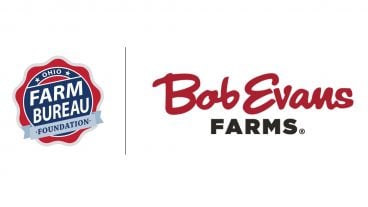
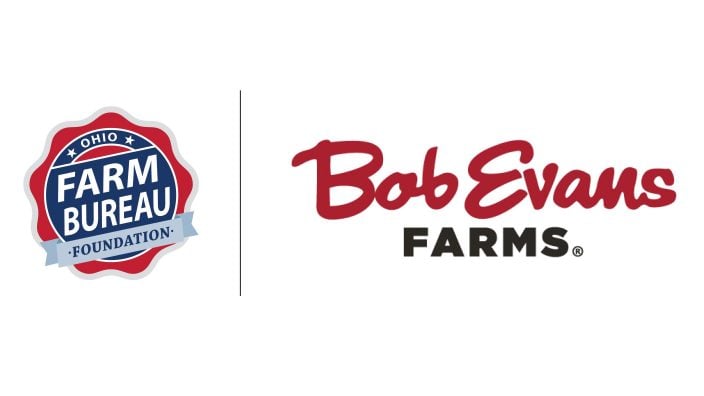
Bob Evans Farms has been a passionate supporter of Ohio Farm Bureau’s ExploreAg program since it began in 2018.
Read More

Ohio Bureau of Workers’ Compensation offers five tips to help prevent slips, trips and falls—one of the top causes of workplace injuries.
Read More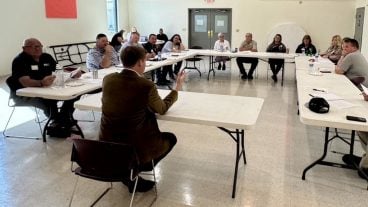
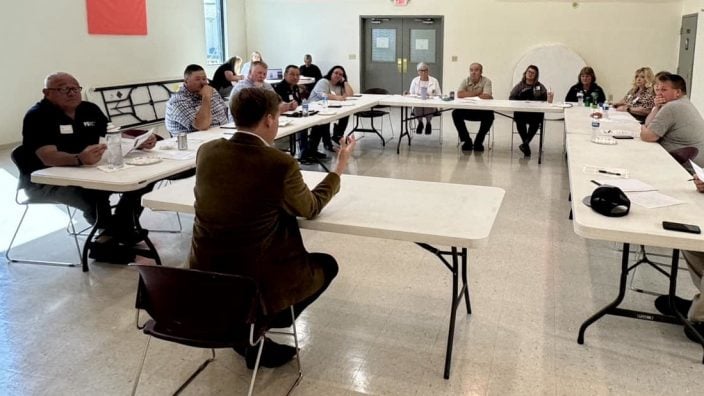
Through a grassroots process, county leaders identified 106 seats where a Friend of Agriculture could be named, with 104 of those seats ultimately being won by a Friend of Agriculture candidate.
Read More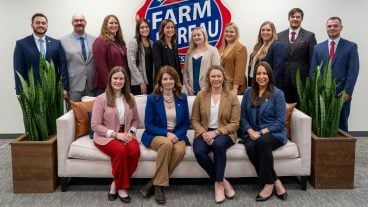
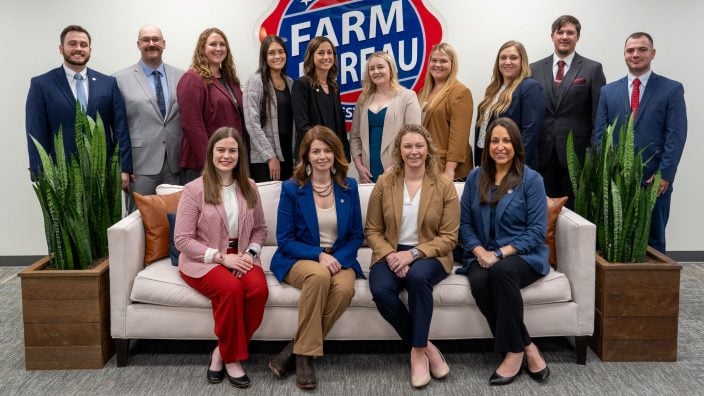
Ohio Farm Bureau’s 2024-2025 AgriPOWER Institute kicked off in October with 14 farmers and agribusiness professionals participating in Class XV.
Read More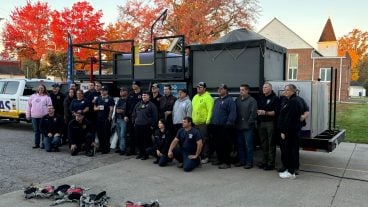
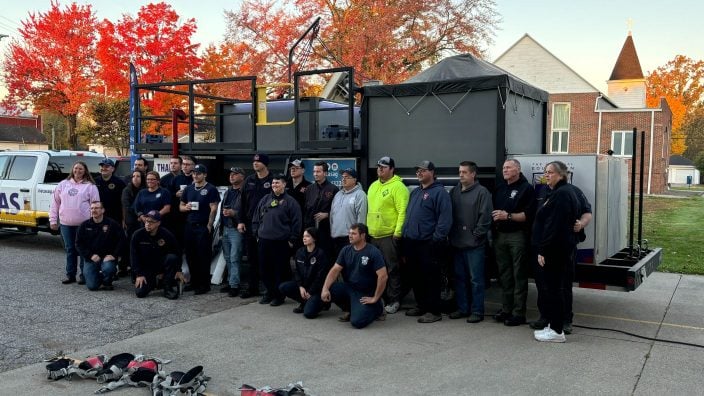
Nationwide’s Grain Bin Safety campaign has awarded grain rescue tubes and training to 390 fire departments across 32 states since 2014.
Read More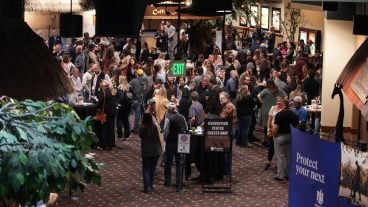
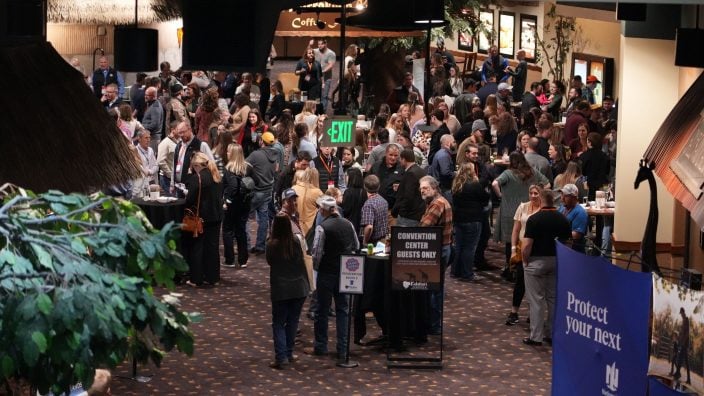
The event takes place Feb. 7-8, 2025 at Kalahari in Sandusky, Ohio and is open to members of all ages. Registration closes Jan. 21.
Read More
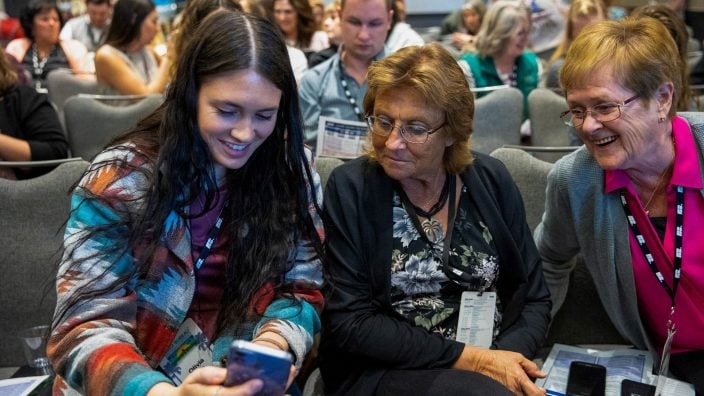
Receive free conference registration and complimentary transportation to and from the conference March 7-10, 2025 in Denver.
Read More